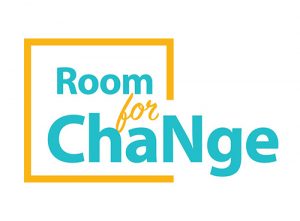By Kristen C. Barry, Public Accommodations Manager
 Restroom accessibility for transgender individuals has recently been at the center of a heated public debate. As a public accommodations advocate, I wanted to dig deeper into the issue. I recently completed a civil rights testing investigation into the discrimination faced by transgender individuals in retail stores that examined issues surrounding sex segregated spaces beyond restrooms. We named the investigation Room for Change.
Restroom accessibility for transgender individuals has recently been at the center of a heated public debate. As a public accommodations advocate, I wanted to dig deeper into the issue. I recently completed a civil rights testing investigation into the discrimination faced by transgender individuals in retail stores that examined issues surrounding sex segregated spaces beyond restrooms. We named the investigation Room for Change.
During the research and development stages of the investigation, an interesting thing happened. It became obvious that the depth and opportunities for discrimination spanned beyond dressing rooms. The discriminatory treatment a trans individual may face while shopping can in fact be so great that they never have the opportunity to reach a dressing room.
Each of the testers who participated in this study was transgender. Prior to starting, they completed training and a field exercise in a retail store. After the field exercise, I would recap the experience with them. I asked the testers how they felt about the experience and if they felt any threat to their safety. While study and testing data is collectively objective, the safety and well-being of the testers is my primary concern, so I found that these check-in questions were helpful and necessary.
What was most insightful was that most of the discrimination that they would recount to me was described as par for the course in their everyday retail experiences. They seemed immune to it. I was amazed at their strength and poise, but I also found myself thinking how deplorable it is that 52 years after the Civil Rights Act of 1964 was passed, discriminatory treatment is considered average service.
Currently, federal law does not prohibit discrimination based on sex, gender identity, or sexual orientation in places of public accommodation, so maybe I shouldn’t have been surprised. Some federal anti-discrimination laws have protections based on sex which has been interpreted at times to cover gender identity. However, no such course of action exists in places of public accommodation. I think it is far past time for comprehensive federal legislation to be passed that will protect all Americans in all areas of their lives. There is much room for change.

